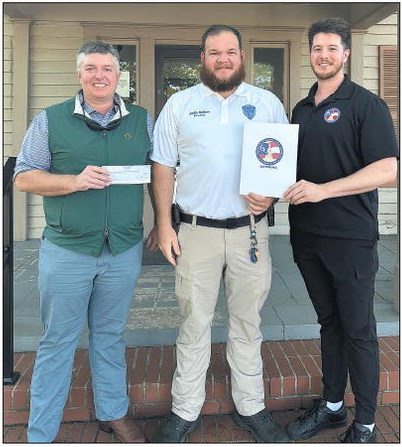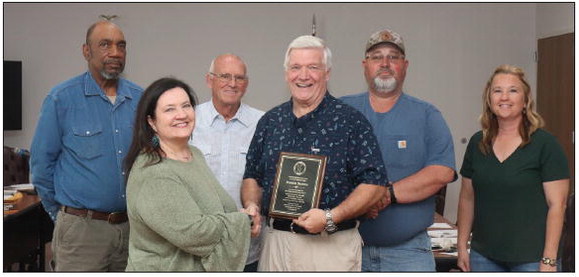Lafayette’s Return


Editor’s Note: In preparation for the 250th Anniversary of the American Revolution, the Four Rivers Chapter of the Sons of the American Revolution (SAR) President William Sanders is sharing messages of the impact of the war on today’s society.
Most of us would say we never knew Lafayette left, so how would we know he has returned? That raises a second question: what do Alabama and Georgia have in common? We like to fish and deer hunt. We like to beat each other at the SEC Championship Game. Also, apparently we both hold a place in our hearts for a fellow by the name Marquis de Lafayette. He must not have been from around here. You cannot call a guy Bubba with a name like that.
Both states named a town after him, and some of our schools have Lafayette in part of their name. Alabama and Georgia both held events in March and April of this year; to celebrate the towns Lafayette visited on his return to America 1824-1825. Is this enough to bring peace with our rivals in Tuscaloosa? I think not. Where had Lafayette been to return? Who was he? Is it true that he was from Indiana?
The last question was an attempt at a joke: Lafayette was not from Indiana, but from France. Lafayette was from an Aristocrat family, I guess that means they were rich and had blue blood. At age 20 probably looking for excitement, he came over to get involved in the Revolution. Washington placed him on his staff with the rank of Major General, that is a general with two stars. The best I could do in the Air Force was 3 stripes and a star. Lafayette participated in the battles of Brandywine and Yorktown, which was the last major land battle of the war.
Why do we think so highly of Lafayette? He was a foreigner and he came to help us out in our time of need. With his money, he could have stayed at home in his castle, counted his money and gone to parties. During the war he also lobbied the French King to come into the war on our side.
After the war, Lafayette returned to France; he was almost as big a hero there as he was here. During the French Revolution, he was a Brigadier General and commanded the National Guard in Paris. He was responsible for saving the King and Queen from execution. In 1803, he retired from public life as a protest of Napoleon's Rule. In 1824, President Monroe invited him to come and take a tour of the United States. By that time the 13 original colonies had turned into 24 states. Our friends from Alabama were trying to get the upper hand on us even in 1824 during Lafayette's Tour. Theytookmoney from the state treasury and threw Lafayette lavish parties in Montgomery, Mobile, and Caha. Just wait, the fall is coming. Go Dawgs!!!








